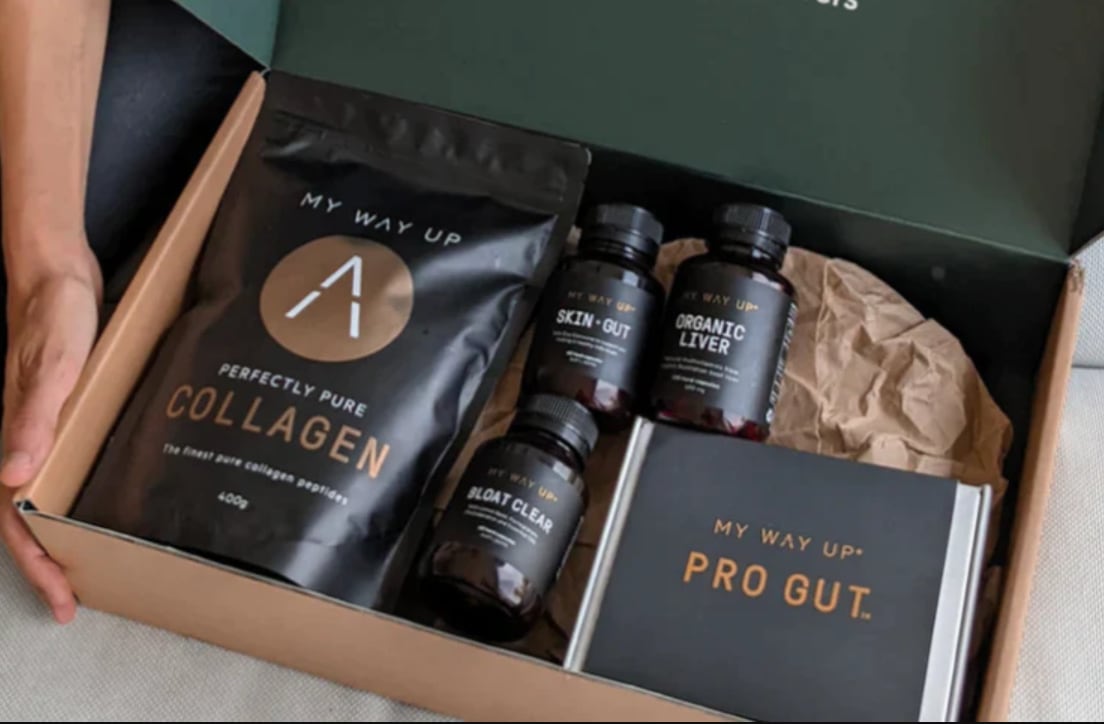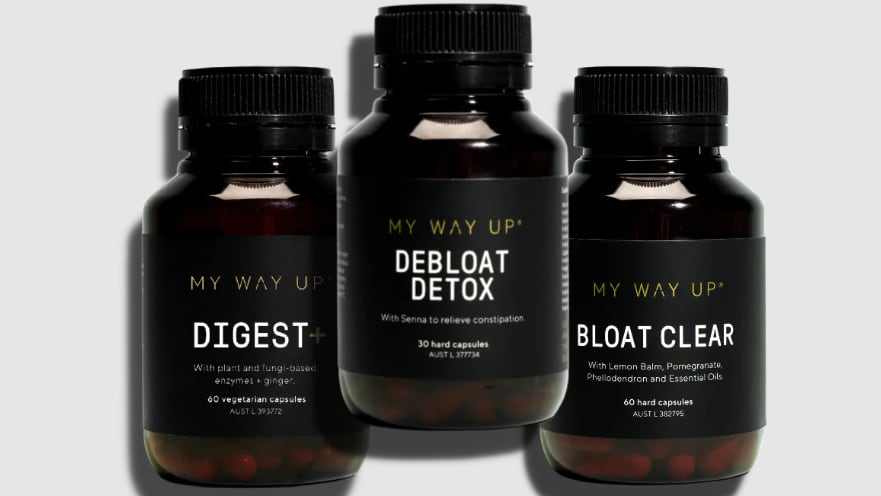My Way Up was established in 2019 by Steve Collins, an exercise physiologist with more than 20 years of practice experience.
The firm offers personalised product advice based on a questionnaire and microbiome sample via its ProGut stool analysis.
Currently 15-20% of customers go down the testing route, with the remaining opting just to purchase its supplements.
“We wanted to give customers a choice. If we were only selling supplements, we’d be really doing our customers a disservice and not getting them the full potential for the best possible results. Right now, we have about 15% to 20% of our customers who opted in for testing and the rest solely for supplements.
“This is a clinical pathway we would be walking down, rather than just being a supplements company,” Collins explained.
What customers with gut health problems want
Its products range from capsules, collagen, oral powders and sprays targeting bloating, skin, hair and gut health, and immunity. They are sold individually and bundled to address targeted concerns.

Many of its products contain multiple probiotic strains and a number of botanicals.
In terms of formats, he said capsules came out on top with consumers.
“I ran a big poll in our Facebook group about what dosage format our customers would prefer. Do they prefer a chewable, flavoured powder, or an old school capsule? I thought chewable was going to win for sure, but capsules won big time.
“I suppose in the gut health space, you're dealing with a lot of people with irritable bowel syndrome (IBS), FODMAP sensitivities and food sensitivities. So, it’s possible that these customers do not want anything with flavours that might mess up their symptoms. They just want the plain old, give it to me straight [formula]. This was interesting learning for us,” Collins explained.
It has also recently launched a series of chewable products.
“For some of our newer chewable products, we're really excited about Xylitol is the main sort of sweetener and Excipient product in there. That obviously goes hand in hand with the gut microbiome in the mouth. Ultimately, results guide us more than anything see. We’re less about marketing tactics but making things super easily consumable and tasty. We’re about fixing the problem that we're setting out to fix. The quality of our formulations is where we hang our hat on.”
Expansion plans
At present, its main distribution is via e-commerce. As for offline presence, the brand is currently available in 50 places in Australia across skin clinics, physiotherapy, and naturopath clinics.
The Pro Gut DNA stool test, which includes an online consultation session with its clinical nutritionist, is only available to customers in Australia and New Zealand.
The brand said that its targeted demographic is the “more upmarket at the moment,” but it is undergoing a rebranding exercise to make its products available at major retailers.
Beyond the Pacific, Collins has his sights set on the United States due to the lower cost of manufacturing, consumer awareness and favourable regulatory landscape. The UK and wider Europe are also on his radar.
Collins said Asia would also be an emerging market as economic growth and gut health problems entwine.
“When I started university in 2001, we were already talking about these health issues then. Gut health problems were skyrocketing in the Western countries like Australia, the US, and the UK. I think as countries improve their economies, a downside of that is unintended consequences like obesity and IBS problems. Countries in Asia, emerging into the digital worlds and extreme stress that comes along with working with offices, will start to see trends of worsening gut health and we would love to be able to get into these markets.”



